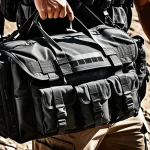Travel Logistics for Basketball Teams
Ensuring smooth travel logistics is crucial for basketball teams aiming to perform at their best. Efficient travel itineraries are vital as they help in streamlining the entire trip, reducing stress, and allowing players to remain focused on their game.
When it comes to team transportation, choosing appropriate methods that accommodate the entire team comfortably is essential. Options can range from chartered buses to flights, depending on the travel distance. Moreover, coordinating the travel schedules efficiently is necessary to minimize fatigue. This involves careful planning of departures and arrivals, as well as considering time zones for longer journeys.
Topic to read : Enhancing Free-Throw Success: Effective Visualization Methods for UK Basketball Players
Efficient travel schedules are particularly significant as they ensure enough rest and recovery time. By scheduling travel hours that align with players’ sleep patterns and meal times, teams can maintain peak physical and mental condition. The careful orchestration of these elements can indeed make a significant difference in a team’s performance. Understanding the nuances of travel logistics empowers teams to handle journeys effectively, keeping spirits high and energy intact for competitions.
Accommodation Tips for Team Performance
For basketball teams on the move, choosing the right team accommodations is key to maintaining peak performance. Hotels that specialize in catering to athletes understand the unique demands of athletic schedules and provide amenities that support physical recovery. These might include access to well-equipped gyms, swimming pools, and dedicated meeting spaces for team talks. Such facilities make a significant difference in how teams can prepare and recuperate after games.
Also read : Rev Up Your Basketball Team’s Second-Half Performance: Key Tactics for UK Coaches
When it comes to hotel considerations, selecting properties that offer nutritional meal options is essential. This helps players maintain their dietary needs without much hassle. Moreover, proximity to venues and reliable transportation links reduce travel time and allow for sufficient rest.
Restful environments are crucial too. Organizing room arrangements that promote team cohesion without sacrificing individual rest can involve booking suites or rooms within close proximity. This configuration enhances team cohesion by facilitating interactions yet also ensures that each player gets adequate downtime. Understanding these nuances can transform a simple hotel stay into a strategic advantage, allowing teams to focus solely on their performance.
Nutrition Strategies for Traveling Athletes
Eating well during travel is essential for maintaining energy and performance, making meal planning a top priority. Balanced meals provide athletes with the right mix of nutrients to stay in peak condition. Identifying healthy food options while on the road can be challenging, but it is crucial for athlete success.
Proper nutrition tips include researching local restaurants for nutritionally sound menus and packing portable snacks, like nuts and fruit, for quick nutrient boosts. When dining out, opting for meals rich in proteins, complex carbohydrates, and vitamins can keep energy levels steady.
Strategies for meal prep can involve pre-arranging meals with hotels or having a meal prep kit on hand. Some teams work with nutritionists to develop personalized plans suited to their dietary needs and preferences. This ensures that players are not only fueled appropriately but can avoid any dietary disruptions that may occur on the move.
Thorough preparation and smart choices regarding nutrition are keys to ensuring that athletes maintain their performance levels when competing away from home. These efforts help remove the stress of finding quality meals, allowing players to focus on their primary goal: winning the game.
Warm-Up and Training on the Road
Warm-up routines are vital for athletes to stay in top form while traveling. Keeping these routines consistent, even away from home, helps maintain muscle readiness and prevents injuries. Teams can benefit from adapting their training sessions to available resources, whether it’s utilizing hotel gyms or even open spaces nearby.
Tailoring training practices to fit limited spaces requires creativity but ensures players stay fit and flexible. Using bodyweight exercises and resistance bands can replace standard gym equipment, offering effective workouts that maintain strength and endurance.
Incorporating mobility exercises is crucial, especially when confined to long travel periods that can cause stiffness. These exercises preserve joint health and improve range of motion, aiding athletes in reducing the risk of injuries during games. Stretching, dynamic warm-ups, and yoga poses can be valuable additions to daily routines, ensuring athletes remain agile and ready for action.
By maintaining and adapting these essential aspects of training, teams can mitigate the physical toll of travel, helping players perform optimally during competitions while minimizing the risk of injury.
Mental Preparation for Competitions
Maintaining focus and managing stress on the road is more crucial than ever. Mental training helps basketball players keep their competitive edge sharp. A strong mental game aids in consistent performance, even amidst travel challenges.
Focus techniques include visualization exercises where players imagine game scenarios and practice responses to potential stressors. Such methods keep their minds attuned to the task at hand, letting them anticipate and react quickly during actual competition.
Stress management is equally vital; it demands simple yet effective practices. These might involve controlled breathing or mindfulness exercises to calm nerves before games. When travel becomes overwhelming, these methods provide a mental anchor, ensuring players remain centered.
Never underestimate the power of team bonding activities. They foster resilience and uplift team morale, making travel an enjoyable rather than a daunting experience. Simple yet meaningful activities, like team-building games or group discussions, strengthen interpersonal relationships, translating to improved teamwork on the court.
Empowering athletes through mental preparation not only enhances individual performance but reinforces overall team success, making every effort worthwhile.
Expert Insights and Testimonials
Gaining insights from seasoned individuals can significantly elevate team performance on the road. Coach insights often stress the importance of maintaining robust travel logistics to counteract potential fatigue. Coaches emphasize that a well-orchestrated travel itinerary coordinates team transportation effectively, ensuring athletes remain at ease. By selecting the right mix of vehicles and scheduling, teams experience less stress and can focus on competition.
Athlete testimonials reveal that seamless travel schedules play a pivotal role in performance upkeep. Athletes frequently credit efficient planning with allowing them to avoid exhaustion and stay mentally sharp for games. By adhering to specific travel schedules that respect their sleep cycles and meal times, players preserve their athlete psychology.
Listening to expert advice from individuals who have witnessed success firsthand is invaluable. Many professionals recommend integrating technology and digital platforms to optimize travel plans and bolster performance. Such strategies not only streamline logistics but amplify the overall experience, translating into tangible success during competitions.
Incorporating these diverse perspectives gives teams a holistic view of effective travel management, fostering environments where players can thrive both physically and mentally.



